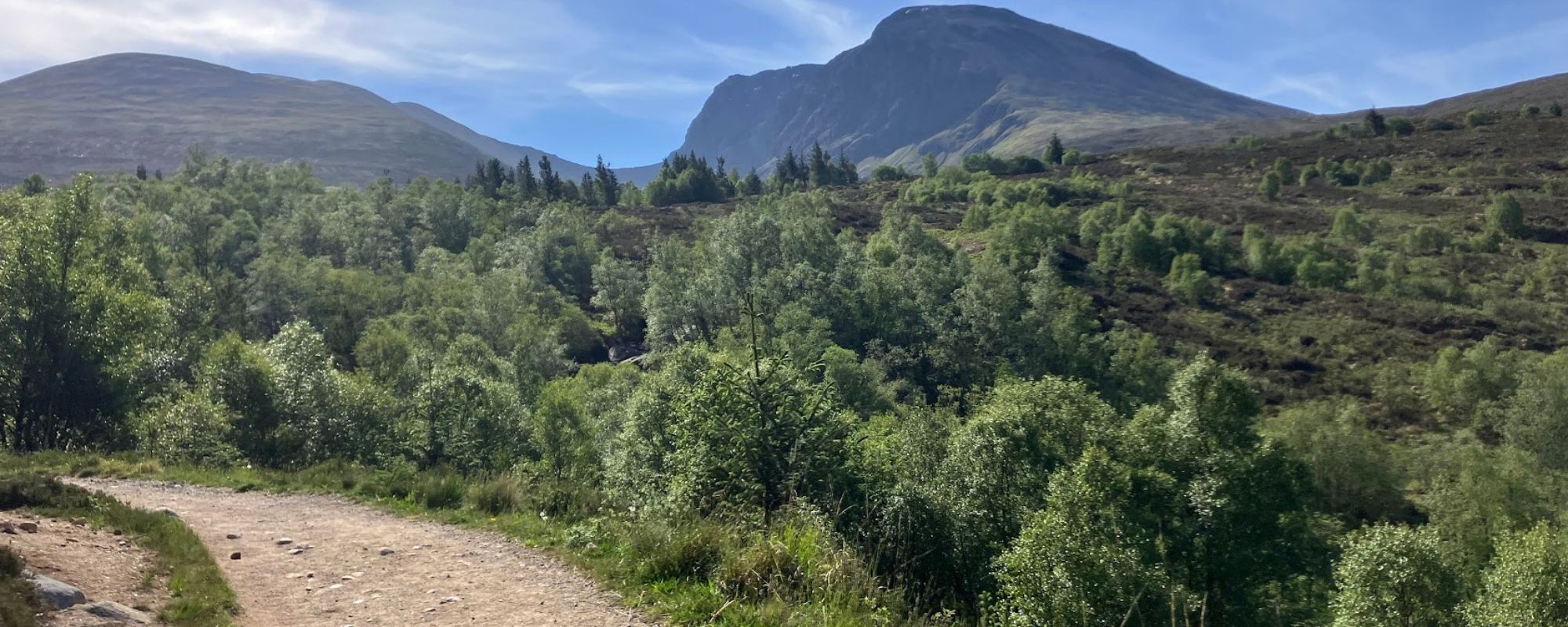Briefing on Land Reform Bill Stage Three debate

Summary of key points
We want this new law to better support and protect Scotland’s world-class access rights.
Ramblers Scotland urges MSPs to support amendments such that:
- Land Management Plans oblige landowners to show how they protect and promote Scotland’s world class rights of outdoor access;
- Land Management Plans apply to a wider range of landholdings than currently in the Bill;
We also believe that MSPs should pass the Bill at Stage 3 but look ahead to the next session of Parliament when the need to deliver on land reform remains as pressing as ever. A programme of reform will inevitably require further legislation but equally, and particularly in relation to outdoor access, a commitment to make existing rights work in practice.
Background
Ramblers Scotland has a longstanding interest in land reform, having been instrumental in the development of Part 1 of the Land Reform (Scotland) Act 2003. Part 1 of the 2003 Act sets out the statutory right of access for walking and other forms of outdoor recreation: rights which are, arguably, unequalled anywhere else in the world.
Over the last 20 years, walking has soared in popularity with three-quarters of all adults in Scotland now walking regularly for recreation, and with enormous benefits for the nation’s health and wellbeing and our rural economy. However, at the same time, the systems set up to promote and ensure compliance with this framework of rights and responsibilities has been neglected and, too often, ignored. Furthermore, people in the most disadvantaged circumstances are the least able to enjoy access rights.
The next Parliament has both a duty and an opportunity to put that neglect right. The current Land Reform (Scotland) Bill can provide a modest step along that way. In particular, land management plans can enhance the existing statutory right of access by requiring land managers to set out proactively how they will uphold and facilitate access rights. The more land which is in scope of land management plans, the more the benefits of the plans can extend in coverage and also bring those areas closer to centres of population with positive benefits for people on lower incomes.
Specific amendments
1. Land Management Plans
Ramblers Scotland supported the change at stage 2 which reduced the threshold at which Land Management Plans have to be produced from 3,000 hectares to 1,000 hectares. This has the effect of doubling the number of landholdings in scope to 700. Amendment 6 and linked amendments in the name of Mercedes Villalba would reduce the threshold to 500 hectares and bring over 2,000 landholdings into scope. So, we support that, either at stage 3 or at some later stage using the powers within the Bill to change the thresholds over time. In any case, we strongly urge MSPs to reject amendments 1 and 23 (in the names of Tim Eagle and Edward Mountain), which seek to raise the threshold back to 3,000ha or 2,000ha respectively.
We also urge MSPs to reject amendment 19 in the name of Edward Mountain which seeks to remove reference to the Scottish Outdoor Access Code in the specific matters which Land Management Plans must include.
2. Contiguous holdings
At stage 2 we supported amendments which sought to deal with a loophole in the Bill which means that a landowner with nearby landholdings both of which are below the threshold for land management plans would not be required to prepare a plan – even though in any common sense view they constitute a single managed holding. The Bill currently says that any land separated by more than 250m is not regarded as contiguous. While recognising that there is not a perfect solution, we support amendment 266 and related amendments in the name of Mark Ruskell which mean that land in the same or adjoining council ward would be regarded as one holding for the purpose of the land management obligations.
3. Public Rights of Way
Amendments 232, 238 and 264 in the names of David Torrance and Mark Ruskell seek to embed consideration of public rights of way in the way land is managed and specifically in relation to the regulations on land management and consultation on Land Management Plans. Access rights in Scotland are much broader than path-based rights, whether these are focused on rights of way or core paths. Public rights of way can, however, be important, especially in urban areas or close to buildings where statutory access rights may not always apply. Obligations to heed public rights of way should still be seen in the context of these wider access rights as set out in Section 44B (3) (c) (ii) of the Bill as it stands. This section seeks to ensure that land managers pay heed to the 2003 Act access rights and the Scottish Outdoor Access Code (SOAC). In practice, in the Bill as it stands after stage 2, this means that land management plans, should include an access statement which sets out clearly how land managers will welcome and facilitate access, including on, but not restricted to, rights of way and core paths.
Since public rights of way are unaffected by the 2003 Act and have their basis in longstanding common law, it could be argued that adding explicit mention of rights of way in the Bill complements what is already there. We have discussed the amendments with ScotWays, the Scottish Rights of Way and Access Society, and we believe there may be drafting ambiguities in amendment 264, in particular, around how rights of way are created and exercised. Whatever the merits of the amendments, they do highlight a growing concern about a gap between access rights on paper and their effective application so we urge MSPs to press ministers on how that gap can be bridged (see below in the Stage 3 debate section).
4. Other amendments
There are a number of other amendments in groups 3 and 4 where we back the recommendations of our colleagues in Community Land Scotland.
Stage Three Debate
The Bill is not perfect and is far from the final word on land reform. While we urge MSPs to support it at stage 3, we also hope that MSPs will take the opportunity to raise the bar of ambition on how land reform delivers for Scotland. Land reform has many facets: from community role in ownership, to housing reform to how land is managed for climate and nature. And much else.
We have argued that arguably the most pervasive impact of land reform to date has been the access rights introduced by Part 1 of the 2003 Act. Huge numbers of people have seen direct benefit by having greater confidence in exercising their right to be in green and blue spaces in a responsible manner and to enjoy the network of 22,000km of core paths coming out of the Act.
But while that framework of rights and responsibilities is mainly robust and rightly-envied, its implementation is not. Investment in infrastructure, education and compliance has declined and is at a low ebb. We might have the best rights in the UK but we are falling behind other nations in the systems which make these rights effective. For example, in agriculture reform, the Welsh Sustainable Farming Scheme recognises the case for funding for access infrastructure and embeds the principle of cross-compliance where land managers receiving subsidy have to adhere to legal responsibilities on access. Scotland has not yet made comparable commitments.
So that is why the main outdoor access organisations have together produced a set of proposals for the next Parliament which seek to make access rights an everyday reality for all. We have made the case for an ambitious “Paths into Nature” programme 2026-31, backed by a £50 million Scottish Paths Fund, to improve the quality, accessibility and visibility of our paths in outdoor spaces. Specific policies we want delivered via a Paths into Nature programme are:
- A single Scottish Paths Fund of £50 million to cover the period 2026-2031
- The new Scottish Government to work with the UK Government to ensure core paths are shown on OS maps
- New guidance to access authorities on how to fulfil their legal role
- An expanded access role for NatureScot including education and promotion and overseeing Scotland’s Great Trails
- An Outdoor Access for All initiative to help the most disadvantaged groups enjoy the benefits and joy of outdoor recreation.
Discover more

Ramblers Scotland
We open the way for everyone to enjoy the simple pleasures of walking and we step up to protect Scotland's world class access rights.
.png?itok=D6Bu-GkL)
News & features
Our latest news, stories, views and opinions on a whole variety of topics related to the world of walking.

Charities hail new duties for landowners over access to land in Scotland
Change to Land Reform Bill doubles number of estates that must publish Land Management Plans